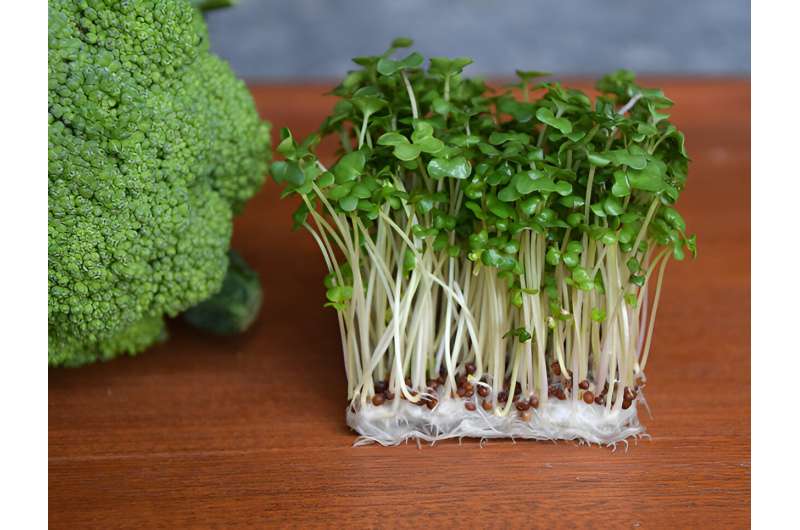This article has been reviewed according to Science X's editorial process and policies. Editors have highlighted the following attributes while ensuring the content's credibility:
fact-checked
peer-reviewed publication
trusted source
proofread
Small but mighty: The hidden power of broccoli sprouts

Remember when your parents used to say, "Eat your greens, they are good for you"? Well, they were really onto something. Several studies have shown that higher intakes of cruciferous vegetables like broccoli, one of the most widely consumed vegetables in the United States, are associated with reduced risks of diseases such as diabetes and cancer, thanks to their organosulfur compounds, such as glucosinolates and isothiocyanates that exhibit a broad spectrum of bioactivities including antioxidant activity. However, few studies have focused on the endogenous content of polysulfide in broccoli sprouts.
A research team led by Assistant Professor Shingo Kasamatsu and Professor Hideshi Ihara of the Graduate School of Science at Osaka Metropolitan University, investigated the amount of polysulfides in broccoli sprouts during the process of their germination and growth. Building upon their previous work, the research team demonstrated the abundance of polysulfide molecules in cruciferous vegetables.
The results of this research were published in Redox Biology.
The team found that total polysulfide content in broccoli sprouts significantly increased during germination and growth, with an approximately 20-fold increase in polysulfides on the fifth day of germination. Furthermore, they discovered a number of unknown polysulfides with indeterminate molecular structures. These findings suggest that the abundance of polysulfides in broccoli sprouts may contribute to their well-known health-promoting properties.
Dr. Kasamatsu stated, "The discovery of the significant increase in polysulfide content during the sprouting process from broccoli seeds was completely by chance and very surprising. This finding suggests that polysulfides may play an important role in the process of plant germination and growth."
"Further investigation of the pharmacological function of these unknown polysulfides could lead to the development of new preventive and therapeutic approaches and medicines for neurodegenerative diseases, stroke, cancer, inflammation, and other oxidative stress-related diseases."
More information: Shingo Kasamatsu et al, Untargeted polysulfide omics analysis of alternations in polysulfide production during the germination of broccoli sprouts, Redox Biology (2023). DOI: 10.1016/j.redox.2023.102875
Journal information: Redox Biology
Provided by Osaka Metropolitan University



















